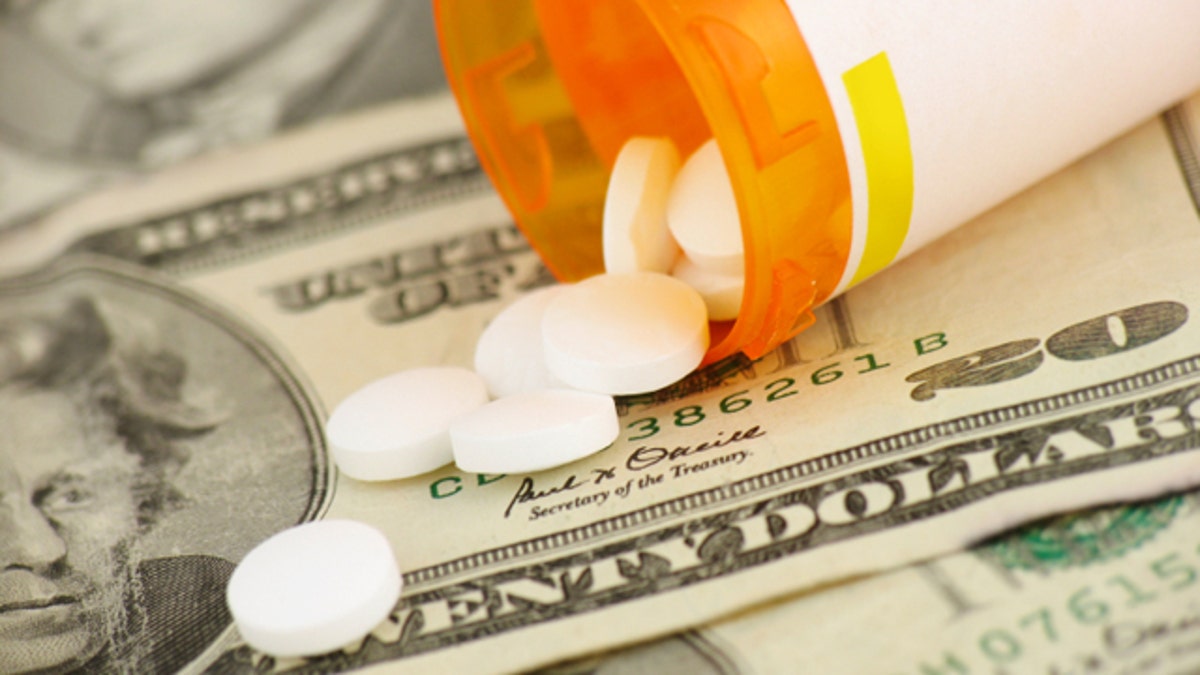
No one wants to spend more money on medications.
In fact, people under 65 are twice as likely as older Americans to skip their meds, according to a new Centers for Disease Control study.
Why? To save money. You know this is a bad idea, but here’s what you may not know: If you fill your prescription at the wrong pharmacy, you could pay up to 447 percent more, according to a new study featured in the May 2013 issue of Consumer Reports.
More: 7 Pains You Should Never Ignore
To investigate drug costs across the country, secret shoppers called more than 200 U.S. pharmacies to price check 30-day supplies of five common genetic prescriptions: the diabetes drug Actos (pioglitazone), the antidepressant Lexapro (escitalopram), the cholesterol regulator Lipitor (atorvastatin), the blood thinner Plavix (clopidogrel), and the asthma drug Singulair (montelukast).
Researchers then tallied the cost of all five drugs at each store and compared the bills.
Overall, Costco was the least expensive—and you don’t even need to be a member to fill your Rx there. Online retailers such as Healthwarehouse.com and Familymeds.com had reasonable prices, too. But according to the secret shoppers, CVS was the most expensive; the prescriptions cost a total of $749 more than they did at Costco. Prices at Rite Aid and Target weren’t much cheaper than at CVS. And while independent pharmacy and grocery store pharmacy prices varied widely, stores outside urban areas tended to charge less.
More: The 76 Best Things You Can Do for Your Body
No matter where you shop, a little research can help you get the best price per pill. Ask your pharmacist these questions so you won’t pay a penny more than you have to:
“Is there a generic version that’s cheaper?”
When you invest in a designer bag, you probably want the real deal—not a knock-off. But unlike with accessories, most generic drugs are just as effective as their name-brand counterparts. Ask your doctor to prescribe the generic version of the drug you need, or if you don’t realize you’ve been given a name-brand Rx until you get to the drugstore, you can always ask the pharmacist for a comparable generic version. Most pharmacists will contact your doctor directly to confirm this change.
“Can you match the price I found at another pharmacy?”
While it’s smart to shop around for the best prices, you’ll want to buy all of your prescriptions from the same place so that your pharmacist can keep tabs on what you’re taking and advise against potentially dangerous drug combinations. To get the lowest price at the pharmacy of your choice, just ask: Independent drug stores will often match other pharmacies’ prices to keep your business, says Stephen W. Schondelmeyer, PharmD, a professor of pharmacy economics at the University of Minnesota.
So if you don’t want to shop at Costco, you can still call them, ask what they’d charge for your meds, and use that to negotiate a better price from the mom-and-pop pharmacy you prefer.
More: The 10 Self-Checks Every Woman Should Do
"Do you give student discounts?”
Because secret shoppers in the study weren’t always offered the lowest price available up front, it pays to ask if you’re getting the lowest price. This question could prompt your pharmacist to disclose additional discounts: Some places offers student and senior discounts, for example.
“Is it cheaper to get a 90-day supply?”
For drugs you take every day, it’s more convenient and often cheaper to buy in bulk, (i.e., a 90-day dose instead of a 30-day one). Target’s pharmacy, for instance, offers more than 300 generic drugs that cost $4 for a 30-day supply, and $10 for a 90-day supply.
“What’s the price without my insurance?”
Just because you have health insurance doesn’t mean you should always use it. Check the retail price just in case your meds cost less than your prescription drug co-pay. For instance, generic Lexapro costs $7 for a 30-day dose at Costco. So if your insurance co-pay is $10, you’re better off paying the full price.
More: 8 Ways to Protect Your Ticker
“Do you have a loyalty card or prescription program discounts?”
Many stores do. For instance, the CVS Health Savings pass ($15/year) offers card-holders a 90-day supply of more than 400 generic drugs for $11.99 a pop. The Walgreens Prescription Savings Club ($20/year) promises an annual savings up of up to $79.13 per 90-day supply of generic drugs. And Rite Aid’s free Rx Savings Program discounts name-brand drugs by 15 percent and offers certain generic drugs for $9.99 per 30-day supply, or $15.99 per 90-day supply.
“Do you accept any independent prescription discount cards?”
No insurance? No problem. Independent prescription discount cards are easy to find online—and they’re often free. To unlock discounts on more than 20,000 name-brand and generic drugs, print a Free Drug Card online and check the site to find a nearby pharmacy that accepts it. Then, flash your card when you pick up your prescription—you’ll save up to 75 percent.
